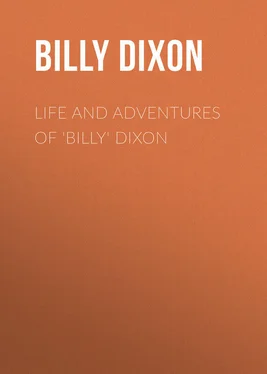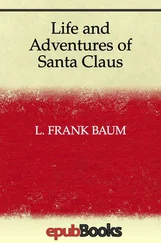Billy Dixon - Life and Adventures of 'Billy' Dixon
Здесь есть возможность читать онлайн «Billy Dixon - Life and Adventures of 'Billy' Dixon» — ознакомительный отрывок электронной книги совершенно бесплатно, а после прочтения отрывка купить полную версию. В некоторых случаях можно слушать аудио, скачать через торрент в формате fb2 и присутствует краткое содержание. Издательство: Иностранный паблик, Жанр: foreign_antique, foreign_prose, на английском языке. Описание произведения, (предисловие) а так же отзывы посетителей доступны на портале библиотеки ЛибКат.
- Название:Life and Adventures of 'Billy' Dixon
- Автор:
- Издательство:Иностранный паблик
- Жанр:
- Год:неизвестен
- ISBN:нет данных
- Рейтинг книги:3 / 5. Голосов: 1
-
Избранное:Добавить в избранное
- Отзывы:
-
Ваша оценка:
- 60
- 1
- 2
- 3
- 4
- 5
Life and Adventures of 'Billy' Dixon: краткое содержание, описание и аннотация
Предлагаем к чтению аннотацию, описание, краткое содержание или предисловие (зависит от того, что написал сам автор книги «Life and Adventures of 'Billy' Dixon»). Если вы не нашли необходимую информацию о книге — напишите в комментариях, мы постараемся отыскать её.
Life and Adventures of 'Billy' Dixon — читать онлайн ознакомительный отрывок
Ниже представлен текст книги, разбитый по страницам. Система сохранения места последней прочитанной страницы, позволяет с удобством читать онлайн бесплатно книгу «Life and Adventures of 'Billy' Dixon», без необходимости каждый раз заново искать на чём Вы остановились. Поставьте закладку, и сможете в любой момент перейти на страницу, на которой закончили чтение.
Интервал:
Закладка:
In this outfit were a good many raw men, while the mules were known as "shave-tails," which meant wild, unbroken mules; only a few had been harnessed and driven. By this time I could handle a team with as much ease as a man could. In my lot were two or three gentle mules – I have cause to remember one old fellow in particular, upon whose back I afterwards had one of the most exciting rides of my life.
We put in ten days breaking the "shave-tails." It was a scene of hilarious excitement, and not without danger, as often mules would be kicking and bucking in harness with might and main, while others would be running away. At such times the drivers had no time to pay attention to other things.
While in this camp, cholera began raging at Fort Harker, which struck terror to many who stood in no fear of other dangers to life. Many of our men deserted, and two died of the dread disease. I witnessed the death of one of our men, Frinkum, and shall never forget his agony. Men who were apparently in the full vigor of health at sunrise lay dead by night. The authorities kept the number of dead secret as much as possible. The burials were usually at night.
This epidemic of death extended from Fort Harker, Kansas, to Fort Union, New Mexico. Its origin was said to have been in the Tenth Cavalry, a negro command, which had shipped from the East to the western frontier. Now, all this excitement did not bother me a bit – I did not think much about it. The doctors made regular calls at our camp every day, and we were placed on a strict diet. We were forbidden to eat any kind of vegetable or fresh meat. The disease ran its course in about three weeks.
Alas, and again alas, up to this time I had never seen a buffalo! I could almost taste buffalo, so keen was I to behold one of these shaggy monsters, pawing the sandy plain, throwing dust high in air, and shaking his ponderous head at his enemies, defying them to battle.
The Government here issued a new lot of arms and ammunition to us. This looked warlike, and was greatly to my liking. The guns were the Sharpe's carbine, carrying a linen cartridge, with which was used the "army hat" cap. In addition, we were given a six-shooter Remington, cap and ball pistol. These were the very latest arms.
Now came an eventful, a momentous morning, I had just crawled from under my blankets and was feeding my mules. Glancing to the northwest, I saw a lone object on the plains. At the moment the object apparently failed to make an impression upon my mind, and I turned toward my mules. Then I jumped as if I had been stung by a hornet. With eyes distended, I whirled and looked again at the lone object on the Plains. My body was vibrating as if touched by a dynamo.
A buffalo! No mistake about it. There he stood, rather far off and dim. Maybe he had been waiting for me all these years, waiting for me to see him. That was my buffalo. I determined that I should get him, even if I had to twist my fingers in his shaggy mane and drag him alive into camp.
Seizing a blind-bridle, I slipped it onto the gentle old mule to which I referred in an earlier page, made a dash for my rifle and rode away bareback and at top speed after the buffalo.
The buffalo had turned and was moving away from camp when he caught sight of the boy on the mule riding wildly toward him. With a flip of his tail, the buffalo struck his rocking-chair gait and went lumbering away. Up and down hills and across gullies he galloped. I was hot behind him, and at times was just at the point of getting range, only to see the buffalo increase his speed and spoil my shot.
We had consumed about eight miles in this sort of thing, when we came to a smooth flat. My old mule was panting and pretty well winded by this time, but I was able to make him take another spurt in speed. This brought me within range. The buffalo fell dead at the first shot. The explosion scared the mule into hysteria, but his was no worse than mine. I had not only killed a buffalo, but had killed, unaided, the first buffalo I ever saw.
By this time three or four men from the outfit had arrived. They were jubilant over my success, and were kind enough to exaggerate the distance of the shot. The buffalo was a hard animal to kill instantly, as a vital spot had to be struck. We skinned the carcass, and each man cut off a chunk of meat and took it back to camp. Greatly to our disgust, not a mouthful were we allowed to cook or eat, because of the cholera quarantine.
A few days later orders were given to load the wagons with Government supplies for Fort Hayes, Kansas, 90 odd miles west of Fort Harker. By this time our "shave-tail" mules were under fairly good control, and we got under headway without much trouble.
On this trip, at a distance, we saw a bunch of Indian warriors, but did not come in contact with them. In my lack of experience I was eager for the fray, and was disappointed when I saw the war party disappear over a long ridge, without my having been able to test my marksmanship and my new Sharpe's rifle. Buffaloes were seen in numbers, and I was lucky enough to kill several "on my own hook." We reached Fort Hayes in about four days, and returned to Fort Harker in about the same time.
Fort Hayes was garrisoned mostly with negro soldiers. No buildings had been erected at that time, and we unloaded our supplies in the open prairie, where guards had been stationed to protect them. The timber for the buildings was being hauled from Fort Harker.
Our next trip was to Fort Wallace, with Government supplies, the distance being considerably greater than from Fort Harker to Fort Hayes. We always had an escort of soldiers, as there was constant danger of meeting an Indian war party.
In August, 1867, we were sent to Fort Lyon, and on this trip we saw thousands of buffaloes. The breeding season was now approaching its close, and at night and early morning could be heard the constant, low thunder of the bulls, their grunting rising into a roar that was one of the most striking of the natural phenomena of the Plains country. The calves, by this time, were alert, active little fellows, closely guarded by their mothers. Later in the season, all the bulls would segregate themselves from the cows, to range apart until the next breeding season. West of Fort Dodge we saw Indians in war paint, and expected to be attacked, but the rascals veered round us and went on their way.
Fort Hayes was on a tributary of the Smoky Hill River; old Fort Zarah, on Walnut Creek; Fort Larned on Pawnee Fork, and Fort Harker on Big Creek. All these forts were being remodeled and improved. In this way we put in all that summer, hauling supplies to one fort or the other, and when not engaged in this, we hauled rock for the foundations of the buildings.
Along in October, 1867, while several Government trains were at Fort Harker, waiting for orders, we were notified to make ready to accompany a party of peace commissioners that had been authorized to treat with several of the main plains tribes of Indians in the Southwest, at Medicine Lodge, Kas. These negotiations were afterwards known as the Medicine Lodge Treaty. Like most other treaties with these tribes, it was soon broken.
Several trains, with a part of ours, were to accompany this expedition. I was eager to go, but as no orders had been given to my outfit, I was fearful that I might be left behind. Here was the opportunity I had long looked for – to see a big gathering of Indians close at hand, without danger of getting scalped. I had almost given up in despair, when an orderly galloped up from headquarters, saying that two more wagons must be sent forward at once. It was now 6 o'clock in the evening. Simpson, our wagon-master, approached me and said:
"Billy, you and Frickie (Frickie drove the wagon next to mine) get ready at once and go into Fort Harker."
As a rule, nothing ever greatly excited me in my frontier days, but I am bound to admit that I was now going round and round, so overjoyed was I at my good luck. My agitation came near causing me to be left behind.
Читать дальшеИнтервал:
Закладка:
Похожие книги на «Life and Adventures of 'Billy' Dixon»
Представляем Вашему вниманию похожие книги на «Life and Adventures of 'Billy' Dixon» списком для выбора. Мы отобрали схожую по названию и смыслу литературу в надежде предоставить читателям больше вариантов отыскать новые, интересные, ещё непрочитанные произведения.
Обсуждение, отзывы о книге «Life and Adventures of 'Billy' Dixon» и просто собственные мнения читателей. Оставьте ваши комментарии, напишите, что Вы думаете о произведении, его смысле или главных героях. Укажите что конкретно понравилось, а что нет, и почему Вы так считаете.










